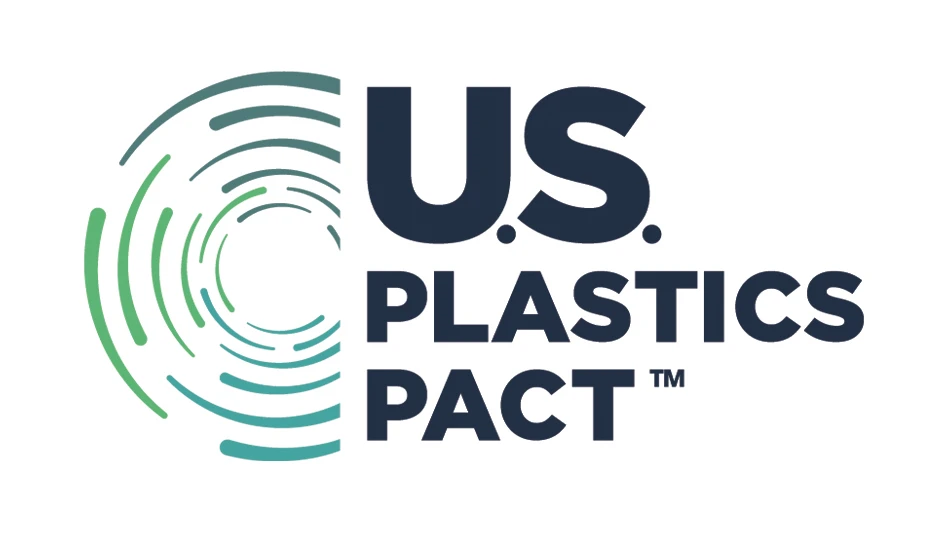 Despite the popularity of online marketplaces for everything from books to shoes, the trading of scrap metals and other recyclables via this medium has been slow to gain traction.
Despite the popularity of online marketplaces for everything from books to shoes, the trading of scrap metals and other recyclables via this medium has been slow to gain traction.
One broker speculates that the reason behind the slow adoption of online trading is because recyclers are more comfortable with a personal, “face-to-face” approach to business.
However, according to another broker, a new generation of scrap dealers may have a different attitude toward online trading. “This group is more attuned to social media and how to use the Internet to boost their businesses,” the broker says, adding that these recyclers are more likely to embrace online trading.
In the past, a number of companies have introduced websites that sought to bring suppliers and buyers of secondary materials together. Whether these websites were ahead of their time or had the wrong business model, they never gained the traction they needed to become successful. Among these early trading sites was the Chicago Board of Trade’s (CBOT’s) Recyclables Exchange, which was launched in the mid-1990s. However, despite significant backing from a number of sources, the CBOT closed the Recyclables Exchange at the end of 1999 after more than three years of operation.
Today, a number of websites are seeking to connect buyers and sellers of recyclables. However, they all stress the need for transparency in pricing.
Making connections
Among the companies currently attempting to connect buyers and sellers of recyclables online are The Scrap Post, www.thescrappost.com, Oak Park, Mich.; Scrap Monster Inc., www.scrapmonster.com, headquartered in Montreal; and Montvale, N.J.-based Peony Online through its Metal Exchange Direct service, www.metalexchangedirect.com.
The Scrap Post, which was launched in September 2013, claims it was founded by a number of industry veterans and “combines over 50 years of recycling experience to create a product for scrap recyclers, by scrap recyclers.” This experience, the founders say, gives them insight into the challenges and opportunities associated with scrap metal trading.
|
No substitute While it offers the opportunity to buy and sell recyclables, The Scrap Post (www.thescrappost.com), Oak Park, Mich., stresses that the site is not designed as a replacement for brokers. In fact, the company’s Mike Bassirpour says many brokers use the site to grow their business. “Lots of brokers use our site to generate leads,” he adds. Bassirpour says many of The Scrap Post’s users are brokers who embrace the service as a way to prospect for more business. Tammy Rinkema, a scrap buyer for Jupiter Aluminum, a Hammond, Ind.-based consumer of aluminum scrap and a user of The Scrap Post, says some brokers she has spoken with recently have said they are reluctant to use the service, feeling that such sites are designed to replace their roles. “They feel they are losing their edge,” she says of these brokers. However, Rinkema says she sees The Scrap Site as one of many tools she has access to. “It is just another tool that we can use to buy and sell scrap.” |
Mike Bassirpour, one of the partners in The Scrap Post, says his inspiration for the site came from being stuck with a specialty order of metal that he needed to move. “I bought a load of counterweights—a very interesting item—on a Saturday. I had three options to sell my metal: I could call my contacts, I could go and Google and search for a buyer and, third, I could use a listing service to sell the metal.”
The success Bassirpour says he had with selling this material through a Web-based listing service was the impetus he needed to develop an online platform that would attract recyclers.
The Scrap Post site was initially developed to trade ferrous and nonferrous scrap metals; however, the website has grown to facilitate the buying and selling of other recyclables as well as equipment and other items.
The site continues to evolve, Bassirpour says. “We are looking at P&L (profit and loss) insurance, credit insurance, site inspection; we want to offer services and want to build customer service,” he adds.
Scrap Monster Inc. CEO Paul Ploumis says his firm began in 2009 with a goal of bringing together scrap buyers and sellers.
Ploumis says Scrap Monster’s marketplace is a simple tool members can use to send out a message quickly about materials they want to buy or sell to thousands of individuals. Trades between members have increased as the site has built credibility in the industry, Ploumis says.
He adds that many members of Scrap Monster also benefit from using the service as a way to monitor prices for various materials.
Ploumis is well-acquainted with the scrap metal business. “Not only do we run this publication but we also operate a recycling facility ourselves and learn about the industry and its issues firsthand,” he says of the people behind Scrap Monster.
One of the first websites for buying and selling scrap metals was Peony Online through its Metal Exchange Direct service. Originally begun in 1993 as a faxing service, Metal Exchange Direct has morphed to include a number of features, including pricing mechanisms.
Metal Exchange Direct, like the other trading sites, has a global reach, though the majority of its business comes from the United States and Canada.
A company representative says Metal Exchange Direct’s key services include Peony Consumer/Broker/Exporter Prices (CBE), Peony Instant Quote (IQ) and a live feed of London Metal Exchange (LME) and COMEX prices, news and analysis.
CBE is a proprietary daily pricing report for scrap and secondary metals. The spokesman says it is the most widely distributed service in the industry, with subscribers ranging from the world’s largest smelters to small local scrap yards. Thousands of buyers and sellers use the CBE to gauge and negotiate prices, according to Peony’s representative, and thousands of transactions have been conducted through CBE since its inception in 1993.
Peony also recently launched IQ as a free additional benefit to subscribers to Metal Exchange Direct. This smartphone optimized service allows users to post as many buying and selling prices as they wish for nonmetallics, such as paper and plastics, as well as for used machinery. Each subscribing company has its own personal platform with its logo, a link to its website and trader info.
“Peony Instant Quote offers fresh and exciting new ways of increasing its subscribers’ ability to reach all corners of the marketplace,” the company’s representative says. “This feature revolutionizes the way companies can buy and sell all different types of materials, not only scrap metals, with personal platforms allowing for free trade of rubber, plastics, used machinery, paper and other recyclable goods,” he adds.
“Peony’s easy-to-use LME/COMEX Web service is the least expensive and most comprehensive service to follow exchange prices in the industry.
“Peony continues to strive to evolve with the ever changing scrap metal industry, looking to constantly find new ways of adding value for, and helping grow the business of all of its subscribers,” the company’s spokesman adds.
One of the benefits of online trading sites is access, according to the developers of such sites. This includes access to a wider network of traders as well as around-the-clock access to buying and selling opportunities. For example, according to The Scrap Post, “Users have 24/7 access to infinite buying and selling opportunities. Even when markets are closed, our users are still able to buy and sell their metal.”
Pricing transparency
In addition to access, online trading sites for scrap metals and other recyclables claim to offer pricing transparency. According to The Scrap Post’s Bassirpour, his site’s ability to bring transparency to the recycling industry is a key benefit. “Lots of people are finding it a great way to monitor prices,” he says of trading via The Scrap Post.
The Scrap Post bills itself as a source for information on the scrap metal market, stating, “Real-time trading gives users live updates on trends and prices related to a specific scrap metal commodity or location.”
 Tammy Rinkema, a scrap buyer for Jupiter Aluminum, a Hammond, Ind.-based consumer of aluminum scrap, says her company uses The Scrap Post’s services and recognizes the website’s potential regarding pricing transparency. “I find it helpful to see what is out there, to see what the prices are in different areas.”
Tammy Rinkema, a scrap buyer for Jupiter Aluminum, a Hammond, Ind.-based consumer of aluminum scrap, says her company uses The Scrap Post’s services and recognizes the website’s potential regarding pricing transparency. “I find it helpful to see what is out there, to see what the prices are in different areas.”
Rinkema adds that sites like The Scrap Post “create independent quality price and volume information, which is then disseminated both to the market participants and after a suitable time delay can then be distributed to a wider audience.”
Ploumis says traditionally the recycling industry has been a closed environment with limited players who kept important information to themselves. Services such as Scrap Monster have opened up the industry, providing useful information to companies, creating new business relationships and keeping track of market trends and pricing, he says. Providing transparency to the marketplace, which can work to level out the playing field for all recyclers, is a benefit to users, Ploumis adds.
Addressing anonymity concerns
Despite the benefits that online trading sites say they offer to their users, critics of these services say the anonymous nature of online trading can make it difficult to verify sellers’ claims.
The companies that have developed these services say they work to combat bogus information. For instance, Scrap Monster’s Ploumis says, “We do concentrate on eliminating fraudulent companies to ensure that materials posted are from real companies.”
However, he adds, “We encourage all members to do their due diligence prior to any transaction, as we can’t guarantee the materials and their quality.”
To address concerns of recyclers who are reluctant to try online trading because they don’t know the person on the other end of the transaction, Ploumis says Scrap Monster is releasing a new trading platform called ScrapEx. Through ScrapEx, which Scrap Monster has been working on for the past 18 months, each member goes through an in-depth verification process prior to gaining access to the trading platform. “Not only will each member be verified, but all postings will also be monitored 24/7 for quality,” Ploumis adds.
“We will be inviting our serious Scrap Monster members to join the ScrapEx trading platform and then open it to new members,” he says. Ploumis says he expects ScrapEx to launch by this spring.
Bassirpour says The Scrap Post’s members use their experience in the scrap metal industry to weed out suspect members.
He adds that while the site does not replace the personal connection between buyers and sellers, it can enhance and broaden a recycler’s existing network.
The spokesman for Peony says, “Users are fully aware that everything they put on Peony is viewed by thousands of real buyers and sellers, so they must put in real prices and materials.”
He says Peony carefully qualifies the companies listing on its CBE and IQ. In the case of a complaint, the company will look into it and try to expedite a resolution. If a user is found not to honor its offers, Peony will remove it from the site immediately, its spokesman says.
While he says online trading may lack the personal touch initially, Ploumis says that relationships can develop in time. “It opens doors to many more potential counterparts, and with time, they can become trusted and regular customers.”
The author is senior editor of Recycling Today and can be contacted at dsandoval@gie.net.

Explore the April 2014 Issue
Check out more from this issue and find your next story to read.
Latest from Recycling Today
- NRC seeks speakers for October event
- LME identifies Hong Kong warehouses
- Greenville, Mississippi, launches aluminum can recycling program
- Cotton Lives On kicks off 2025 recycling activities
- Georgia-Pacific names president of corrugated business
- Sev.en Global Investments completes acquisitions of Celsa Steel UK, Celsa Nordic
- Wisconsin Aluminum Foundry is a finalist for US manufacturing leadership award
- MetalX announces leadership appointments





